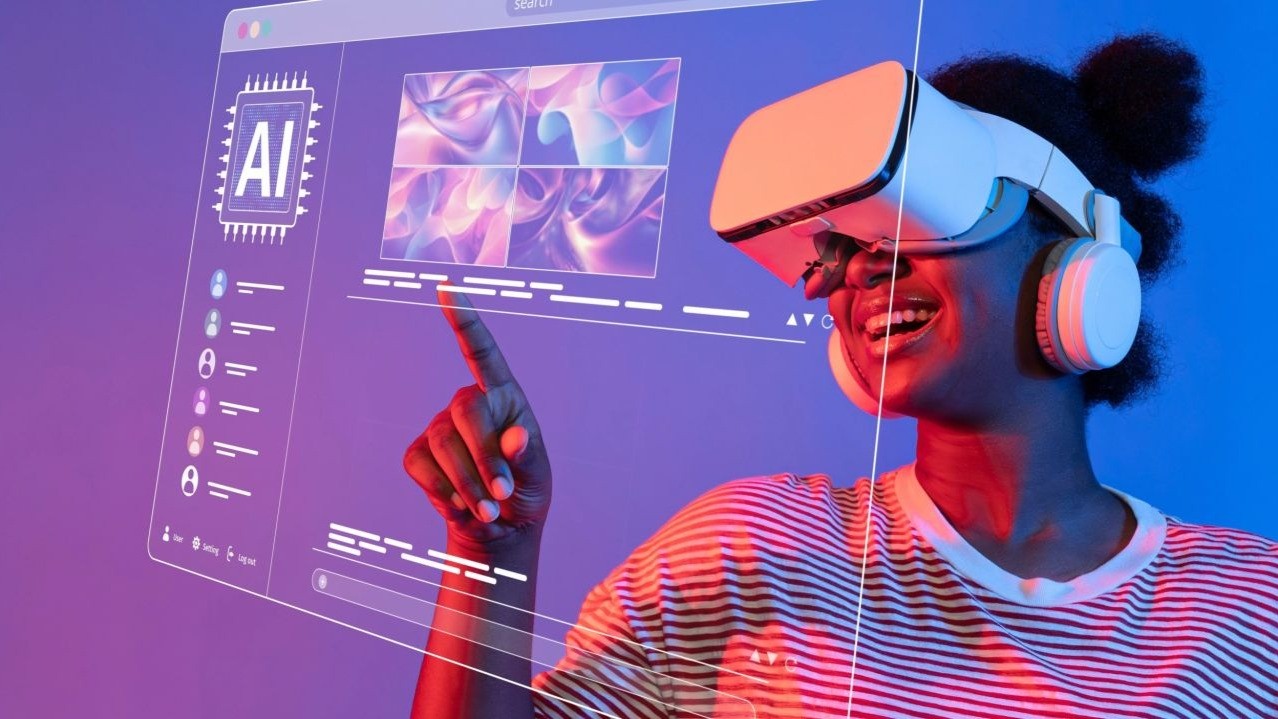The Role Of Generative AI In Video Game Development
29 April 2024
Generative AI offers exciting new ways for video game developers to create engaging content, realistic visuals, and immersive gameplay experiences. In this article, we’ll explore how generative AI can enhance and accelerate game development – with a few examples.

What Can Generative AI Do?
Let’s break down some of the main elements of game development and see how generative AI can facilitate the process:
- Procedural generation. By leveraging algorithms to create vast, intricate, and unpredictable environments, games can potentially deliver a unique, dynamic experience in each gameplay session.
- Terrain generation. Generative AI can assist in the generation of realistic terrains, enhancing the visual appeal of game worlds.
- Automated modeling. Generative AI can streamline the creation of 3D models for characters and other elements, thereby reducing the time and expertise required.
- Voice synthesis. Developers can utilize AI to create diverse and realistic voiceovers for characters.
- Voice modification. Generative AI provides the means to modify voice recordings easily, thus creating a diverse range of voices for characters with limited resources.
- Generative music. Thanks to generative AI it’s possible to automatically create music scores for games – and even create dynamic scores that change based on in-game events, thereby enhancing the emotional impact of games.
- Sound effects. Generative AI can also be used to generate realistic sound effects, to support the immersion and realism of game worlds.
- Ambient soundscapes. Immersive ambient soundscapes that enhance the game’s atmosphere can be created with generative AI.
- Dialogue generation. Generative AI can also write realistic dialogue for characters.
- Personality generation. Generative AI is capable of crafting unique and consistent character personalities that enrich storytelling.
- Dynamic storytelling. Non-linear storylines that adapt based on player choices are another possibility thanks to generative AI. This helps to create a more personalized gaming experience.
- Automated quest generation. Generative AI can also be used to automatically create quests and missions that align with the game’s overarching narrative.
It’s no wonder the developer of Assassin’s Creed, Jade Raymond, says AI in the development of big-budget games is “unavoidable” due to its ability to cut expenses and speed up game development.
Testing Video Games
Another way generative AI can add value to video games is in-game testing and quality assurance. For one thing, generative AI can be used to automatically detect bugs and defects in games, and rank them according to priority and their impact on the game. Plus, the predictive capabilities of AI mean it can be used to analyze data to predict potential issues within a game, allowing developers to take proactive action.
Generative AI can also be used to create multiple simulated players (i.e. bots) to test the game, all playing in different ways according to their AI-generated play styles. This allows game developers to quickly work out where players get stuck, where players are most likely to spend money (on in-game accessories), and which factors lead to less satisfying gaming experiences.
Real-World Examples
Video game company Ninja Theory has reportedly tapped into generative AI to generate vocal performances – using the Altered AI voice library. Meanwhile, Ubisoft, creator of Assassin’s Creed, has developed its own in-house generative AI tool called Ghostwriter to create “barks,” those brief phrases spoken by NPCs when triggered by certain events. The idea is to automatically create first drafts of character dialogues (for example, enemy dialogue during a battle scene), which scriptwriters can then select from and, if necessary, polish up. By automating these little lines of dialogue – of which there could be hundreds within a game – scriptwriters can instead focus their time on core plot dialogue.
The developers of Lords of the Fallen also experimented with generative AI during its production. The technology was used to create AI-generated voices for prototyping in the early stages of the game’s build, with the final dialogue being recorded by professional voice actors. This goes to show how generative AI can be a useful tool for faster prototyping, thereby helping to get new projects off the ground quicker.
While generative AI will not replace the essential human creativity, imagination and artistry that goes into developing new video games, it’s clear that generative AI will be a valuable tool for developers. By helping to speed up game development and reduce the costs associated with bringing new games to market, generative AI marks a huge leap forward in video game development.
Related Articles
AI Agents Lead The 8 Tech Trends Transforming Enterprise In 2026
By now, “smart” versions exist of just about every home appliance, gadget and gizmos we can think of. However, manufacturers continue[...]
The 8 Data Trends That Will Define 2026
By now, “smart” versions exist of just about every home appliance, gadget and gizmos we can think of. However, manufacturers continue[...]
7 Quantum Computing Trends That Will Shape Every Industry In 2026
By now, “smart” versions exist of just about every home appliance, gadget and gizmos we can think of. However, manufacturers continue[...]
The Next Giant Leap For AI Is Called World Models
By now, “smart” versions exist of just about every home appliance, gadget and gizmos we can think of. However, manufacturers continue[...]
7 Revolutionary Space Tech Trends That Will Transform Life On Earth In 2026
By now, “smart” versions exist of just about every home appliance, gadget and gizmos we can think of. However, manufacturers continue[...]
4 Tech Trends That Will Shape 2026 And The Breakthroughs Powering Them
By now, “smart” versions exist of just about every home appliance, gadget and gizmos we can think of. However, manufacturers continue[...]
Sign up to Stay in Touch!
Bernard Marr is a world-renowned futurist, influencer and thought leader in the fields of business and technology, with a passion for using technology for the good of humanity.
He is a best-selling author of over 20 books, writes a regular column for Forbes and advises and coaches many of the world’s best-known organisations.
He has a combined following of 4 million people across his social media channels and newsletters and was ranked by LinkedIn as one of the top 5 business influencers in the world.
Bernard’s latest book is ‘Generative AI in Practice’.










Social Media